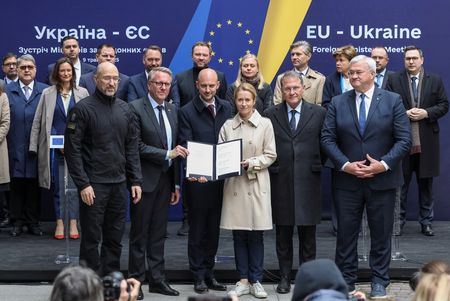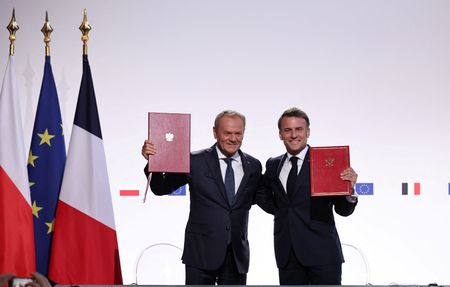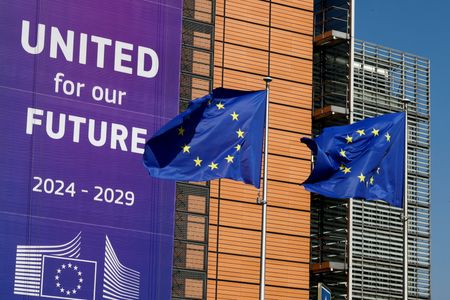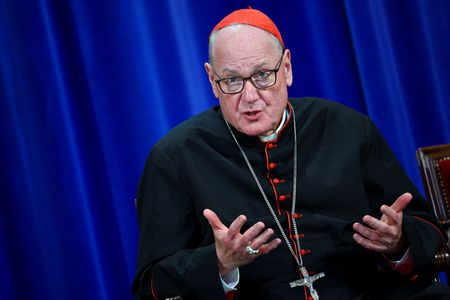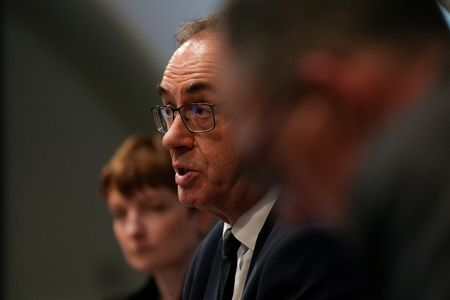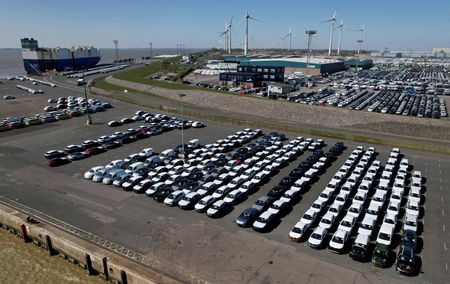By Andriy Perun and Vladyslav Smilianets
LVIV, Ukraine (Reuters) – Europe threw its support on Friday behind a special tribunal to prosecute President Vladimir Putin and other senior Russian officials for the crime of aggression against Ukraine, a show of unity on a day when Moscow marks its “victory day”.
At a meeting in Ukraine’s western city of Lviv, ministers from almost 20 European nations gave their political sign-off to the tribunal, welcoming the completion of the technical work required to set it up.
The tribunal will be set up within the framework of the Council of Europe, the continent’s leading human rights watchdog that was formed after World War Two to uphold rights and the rule of law.
European nations have stepped up their efforts since U.S. President Donald Trump authorised sanctions in February against the International Criminal Court, created to prosecute war crimes when member states are unwilling or unable to do so themselves.
Russia denies its troops have committed atrocities in Ukraine since its forces launched a full-scale invasion in February 2022. Ukraine says Russian troops have committed many thousands of war crimes.
Foreign ministers from the so-called ‘core group’ of at least 37 countries signed the “Lviv statement”, a document marking the conclusion of work done to draft the necessary legal instruments for the tribunal.
The tribunal could start operating next year.
“This tribunal will ensure that those most responsible for the aggression against Ukraine are held accountable,” EU foreign policy chief Kaja Kallas told reporters
Ukrainian President Volodymyr Zelenskiy said it was a moral duty for Europe to hold Russia accountable for the war.
“A strong tribunal for the crime of aggression can – and must – make any potential aggressor think twice,” he said in a video address to the meeting.
‘GOOD STEP’
An EU official said the tribunal would need to respect the immunity of Putin and his officials while in office but added a prosecutor would be able to investigate and prepare a proposed indictment for when that immunity dropped.
Dutch Justice Minister David van Weel welcomed the move.
“I think it is a good step because it fills a void that currently exists, which is how can you prosecute the leadership for the crime of aggression against another country,” he told Reuters in Kyiv.
Earlier, Ukrainian Prime Minister Denys Shmyhal led ministers to a military cemetery in Lviv to honour some of the tens of thousands of Ukrainians killed during more than three years of war against Russia.
The images were in stark contrast to the show of military might in Moscow, where Putin and Chinese President Xi Jinping attended a parade to mark the 80th anniversary of the World War Two defeat of Nazi Germany.
Drawing a parallel with the allied victory in World War Two, British foreign minister David Lammy said 80 years later “in Ukraine we are (again) on the frontlines of that fight for freedom … sending a powerful message to Putin and his cronies and those that stand with him that freedom will prevail”.
European nations are trying to ramp up the pressure on Putin to accept an unconditional 30-day ceasefire, as proposed by the United States. Separately, Britain on Friday announced a new package of sanctions on Russia’s so-called shadow fleet.
Ukraine has been pushing for the creation of a special tribunal since early in the conflict, accusing Russian troops of committing many thousands of war crimes, but is also intent on prosecuting Russians for orchestrating the 2022 invasion.
The ICC has issued an arrest warrant against Putin over the deportation of Ukrainian children. Moscow says the warrant is meaningless, and “null and void”.
But the ICC cannot prosecute Russian officials for the crime of aggression in Ukraine because Russia is not a member of the Rome Statute, which created the court, and Ukraine was not a full member at the time of the invasion.
For the ICC to prosecute the crime of aggression, members must also sign an additional amendment.
(Writing by Elizabeth Piper; Editing by Gareth Jones)

